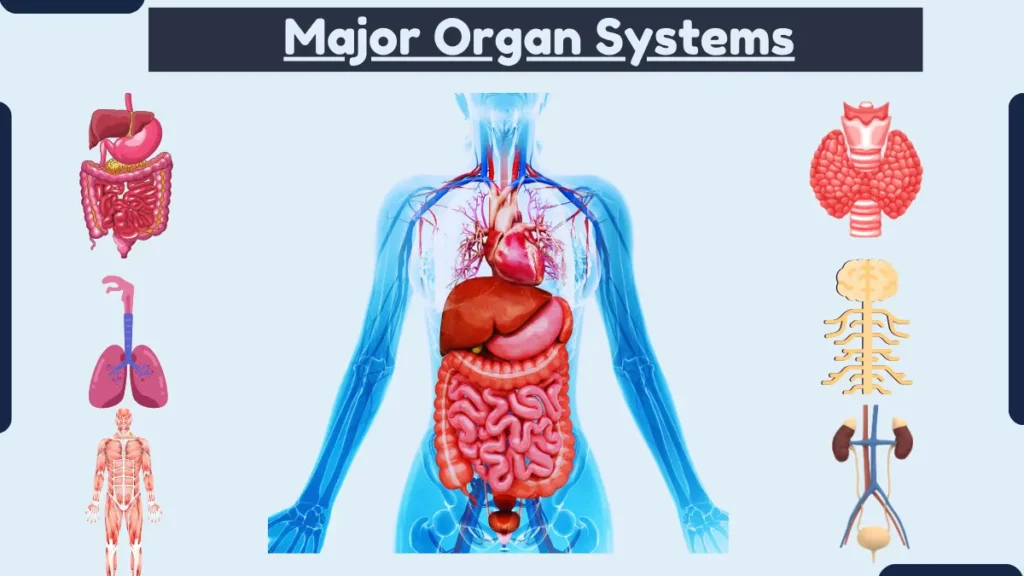11 Major Organ Systems
The human body is a complex system made up of many different organs and tissues. These organs and tissues work together to keep us alive and functioning. Major organ systems include the circulatory system, digestive system, endocrine system, immune system, integumentary system, muscular system, nervous system, reproductive system, respiratory system, skeletal system, and urinary system.

Major Organ Systems
Here are major organ systems that are found in multicellular animals, and possess the highest levels of organization.
1. Circulatory System
The circulatory system is responsible for transporting blood throughout the body. Blood carries oxygen, nutrients, and hormones to all of the body’s cells. It also removes waste products from the cells. The circulatory system is made up of the heart, blood vessels, and blood.
2. Digestive System
The digestive system is responsible for breaking down food into nutrients that the body can use for energy, growth, and repair. The digestive system is made up of the mouth, esophagus, stomach, small intestine, large intestine, rectum, and anus.
3. Endocrine System
The endocrine system is responsible for producing and releasing hormones. Hormones are chemical messengers that regulate many different bodily functions, including growth, metabolism, and reproduction. The endocrine system is made up of glands such as the pituitary gland, thyroid gland, and adrenal glands.
4. Immune System
The immune system is responsible for defending the body against infection and disease. The immune system is made up of white blood cells, antibodies, and other specialized cells and tissues.
5. Integumentary System
The integumentary system is the skin, hair, and nails. The integumentary system protects the body from the environment and helps to regulate body temperature.
6. Muscular System
The muscular system is responsible for movement. The muscular system is made up of three types of muscle: skeletal muscle, smooth muscle, and cardiac muscle.
7. Nervous System
The nervous system is responsible for controlling all of the body’s functions. The nervous system is made up of the brain, spinal cord, and nerves.
8. Reproductive System
The reproductive system is responsible for producing and transporting gametes (sperm and eggs). The male reproductive system is made up of the testes, scrotum, penis, and prostate gland. The female reproductive system is made up of the ovaries, fallopian tubes, uterus, cervix, and vagina.
9. Respiratory System
The respiratory system is responsible for exchanging oxygen and carbon dioxide between the blood and the air. The respiratory system is made up of the lungs, trachea, bronchi, and bronchioles.
10. Skeletal System
The skeletal system is made up of bones and cartilage. The skeletal system provides support and protection for the body, and it also serves as a place for muscle attachment.
11. Urinary System
The urinary system is responsible for filtering waste products from the blood and producing urine. The urinary system is made up of the kidneys, ureters, bladder, and urethra.
How Organ Systems work?
All of the major organ systems in the body work together to keep us alive and functioning. For example, the circulatory system transports oxygen and nutrients to the digestive system, so that the digestive system can break down food into nutrients that the body can use.
The endocrine system releases hormones that regulate the digestive system and other bodily functions. The immune system protects the digestive system from infection. The integumentary system protects the digestive system from the environment. The muscular system allows us to eat and swallow food.
The nervous system controls the digestive system. The reproductive system produces gametes that can be fertilized to create new offspring. The respiratory system provides oxygen to the digestive system, so that the digestive system can function properly.
The skeletal system provides support and protection for the digestive system. The urinary system removes waste products from the digestive system.



Leave a Reply